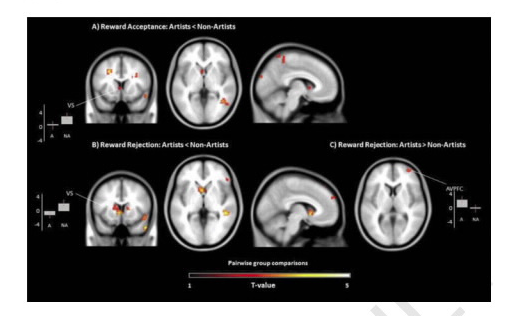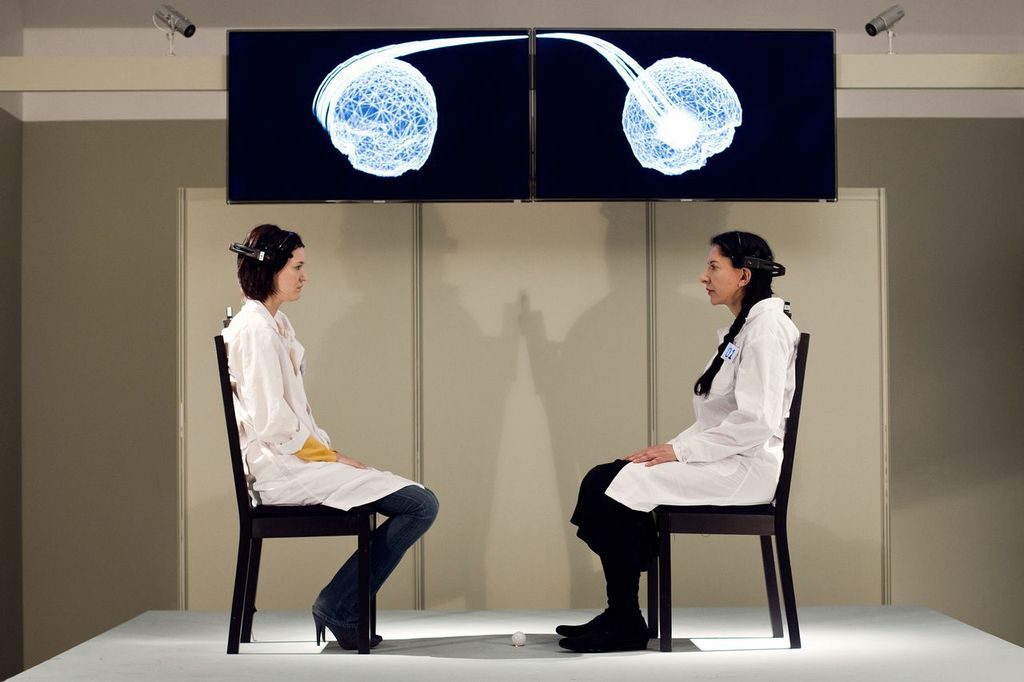Dopamine reward system in creative people’s brains does not respond to money
 Brain scanning during tests. Source: Сreativity Research Journal/Artnet.com
Brain scanning during tests. Source: Сreativity Research Journal/Artnet.com
What if some artists are really – psychologically – programmed not to think about money?
A recent study led by Dr. Roberto Goya-Maldonado answers this question, according to Artnet.
Researchers were studying brain activity of artists and non-artists when they were offered monetary rewards. They particularly watched parts of the brain that produce dopamine – a chemical that causes agitation often associated with sex, drugs and gambling. Results of the study were published by the Creativity Research Journal.
The sample size of the research is not large – only 24 participants. Half of them had art-related jobs – actors, artists, sculptors, musicians and photographers. The other 12 participants, among them an insurance salesman, a dentist, a business administrator and an engineer, did not call themselves artists.
 Marina Abramovic, Suzanne Dikker, Matthias Oostrik, Measuring the Magic of Mutual Gaze, 2011. Source: Maxim Lubimov, Garage Center for Contemporary Culture.
Marina Abramovic, Suzanne Dikker, Matthias Oostrik, Measuring the Magic of Mutual Gaze, 2011. Source: Maxim Lubimov, Garage Center for Contemporary Culture.
Each participant wore goggles that showed squares in different colours. When a green square appeared, they could select it with a button and receive up to €30. They were also asked to select other “target” colours, but no reward was offered for them.
The researchers used functional magnetic resonance imaging (fMRI) to monitor the participants’ brain activity and discovered that the first group showed significantly reduced activation in the ventral striatum, part of the brain’s reward system, when they chose money-making green squares compared to non-artists.
In another test, the researchers found out that artists showed a greater response in another dopamine-related part of the brain – the anterior prefrontal cortex – when they were asked to reject the green squares. In other words, artists were more excited when they refused to take money and less excited when they accepted it.
“Collectively, our results indicate the existence of distinct neural traits in the dopaminergic reward system of artists, who are less inclined to react to the acceptance of monetary rewards,” the researchers say.
Doctor Roberto Goya-Maldonado is the head of the systems neuroscience and imaging in psychiatry lab at the University Medical Centerin Göttingen, Germany.
Subscribe to our mailing list: